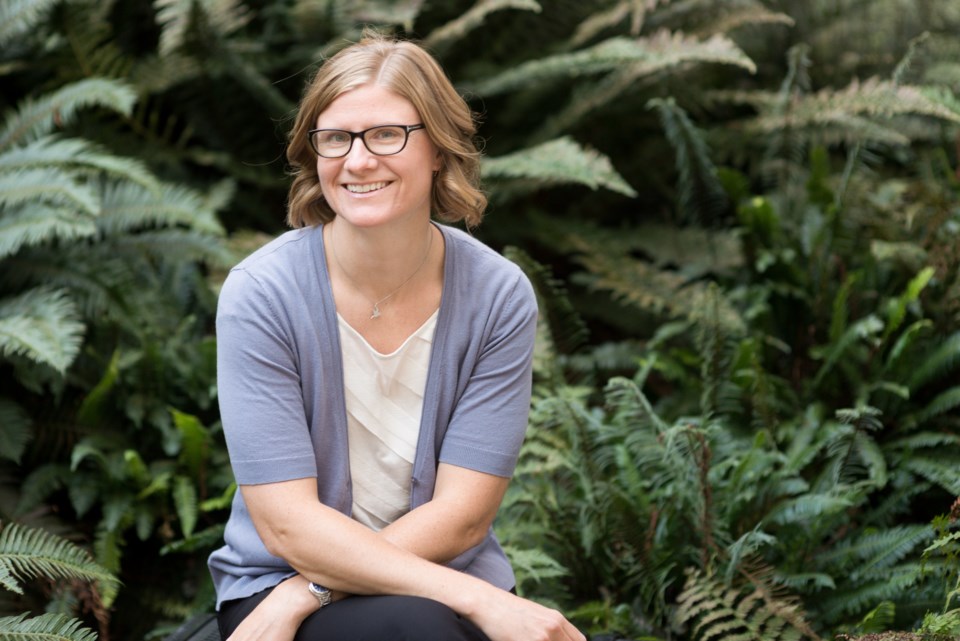BOW VALLEY – A consulting group is looking to transform the film industry in Alberta by fostering a culture that embraces and encourages sustainability.
Green Spark Group explores the environmental impacts of films in the communities they are produced and consults with production companies on sustainability, said president Zena Harris.
“We are in a climate crisis right now,” Harris said. “I think it is imperative for every single industry to be talking about what they’re doing and actively working on to reduce impacts.”
Green Spark Group works with the film industry to implement and support sustainable practices.
It is an important discussion given the number of film productions that take place in the Bow Valley region and Alberta as a whole, she said.
“It impacts every jurisdiction,” Harris said. “When you have several productions those productions have inputs coming in and outputs coming out.”
Based on the information they have collected on sets, Harris said, productions have on average the potential to emit 500 metric tonnes of carbon emissions.
“There’s an impact for sure,” Harris said. “But, there’s also an opportunity.”
Studios and filmmakers are becoming more aware of the environmental effects of productions, she added, and there have been groups in the Bow Valley that have consulted with Green Spark including a recent Disney production.
“Any production has the ability to reduce their impact,” she said. “But, the larger studio productions generally have that directive from their corporate office and usually have support to make this happen.
“What it comes down to is the will of the local production crew to actually implement the practices.”
The first step Green Spark takes is learning what resources are used by a given production and taking time to work with crews to reduce impacts.
“Everyone can do something, and everyone contributes to the waste drain and other impacts of production,” Harris said, explaining that it is critically important to think of how actions on set directly affect the environment.
The film and television industry has an especially impactful voice in terms of discussing sustainability, she added, because of the nature of the industry.
“It’s so important for the industry to walk the talk,” she said.
Green Spark Group consultant Jennifer Sandoval recently worked on a production in Cochrane and assisted in implementing and educating crew on sustainability practices.
The general public is becoming more aware of climate change and the impact of human activity on the environment, Sandoval said, adding that the film industry is taking active steps to address these concerns and become more sustainable.
It has been an amazing experience to be a part of this change in the industry.
“It’s just constantly renewing — in some ways it good because you’re learning every day from everyone around you,” Sandoval said. “It’s nice to be involved at this point because I think it’s still somewhat of a recent movement in the film industry.”
A number of films production take place in the southwest region of Alberta because of the amazing scenery that is available, Sandoval said.
The Rocky Mountains make Alberta a destination of choice for many productions that include feature films, commercials, music videos and television series, said Mark Ham, Creative and Community Development, Cultural Industries Branch, executive director and film commissioner. High-profile shoots that have taken place in the Bow Valley include the movies Inception, Revenant, Brokeback Mountain, along with the television shows Fargo and Hell on Wheels.
In the last year, Sony and Disney have had productions in the area, he said, largely in part because of the stunning vistas offered in Bow Valley and the areas close vicinity to Calgary.
"Alberta is also an attractive filming destination owing to its skilled local film crews, two purpose-built film studios (the Calgary Film Centre and Film Alberta Studio in Edmonton), and numerous post-production facilities," he said.
While these productions did not consult with Green Spark Group there is a growing interest in the industry in promoting sustainability.
It can prove challenging instituting sustainable practices in these more rural locations because they are geographically different from major cities, Sandoval said.
“There’s a big difference in focus and what your able to do,” she said, because they are often forced to adapt their practices based on the more isolated conditions forcing teams to become creative and embrace innovative solutions.
“We’re trying to develop guidelines that will be more adaptable to different regions and different sized productions.”
As a consultant, Sandoval typically meets with the producer and production managers ahead of the production of a film to formulate a strategy based on their needs and interests. Some productions go "all-out" in embracing sustainable practices while others focus on gradually introducing sustainable practices.
“We try to focus on areas that we know in our experience have the biggest impacts,” Sandoval said.
In film production that typically involves fuel and energy used paired with waste.
Film audiences have a stake in how films are made, Sandoval added. She wants to see people start to think about how a film is made and it’s environmental impact.
“As we keep trying to push this forward, the general public, the audience can really have a lot more of an impact if they express that they have a concern about how things are made,” Sandoval said. “Eventually we’ll be hopefully be growing this program — It’s something that really needs support from the whole community.”




